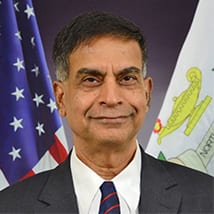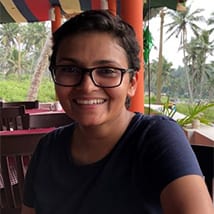Session 2:
Date: October 22, 4:00 – 5:30 p.m.
Title: Historical and New Perspectives on the Politics of Security
Moderators: Jonathan Powell, Rebecca Schiel
Shyam Tekwani, Daniel K. Inouye Asia-Pacific Center for Security Studies
Title: Riots, Witch Hunts, Electocracy: India’s New Security Order?

Biography: Shyam Tekwani is professor at the Daniel K. Inouye Asia-Pacific Center for Security Studies where he specializes in political violence, terrorism and counterterrorism; security dynamics of South Asia and the role of media in security. Tekwani has authored and co-authored several books, book chapters, articles and opinion pieces including Media and Conflict Reporting in Asia; “Online Networks of Terrorist Groups and their Implications for Security”; “The Internet in the 2004 Sri Lankan Elections”; “Two Indias: The Role of the Internet in the 2004 National Elections”; and “The Media, Information Revolution and Terrorism in Southeast Asia.” Tekwani’s extensive background in the media as a journalist reporting conflict and insurgency in the Indo-Asia Pacific includes his exclusive reportage of the ethnic conflict in Sri Lanka. His move to academics converged with the parallel shift of insurgencies and propaganda to the Internet in the early-90s and his early academic work focused on the use of new media technologies by terrorists and insurgent groups. He has taught courses and lectured widely across countries at universities and institutions, including the last decade at the School of Communication Studies in the Nanyang Technological University, Singapore. A native of India, Professor Tekwani earned a B.A. (Honors) in history and comparative religion from Visva-Bharati University, Santiniketan, and an MFA in Photography from the Maryland Institute College of Art, Baltimore.
Sanjib Baruah, Bard College
Title: Nation, Nation-building and Postcolonial Sovereignty: A View from a Borderland

Biography: Sanjib Baruah is a Professor of Political Studies at Bard College. He holds a BA from Cotton College, Guwahati, India; an MA from the University of Delhi, and a Ph.D. from the University of Chicago. Baruah’s teaching and research interests include political economy, nations and nationalism, Asian borderlands, and South Asian Politics. His publications include India against Itself: Assam and the Politics of Nationality; Durable Disorder: Understanding the Politics of Northeast India; Postfrontier Blues: Towards a New Policy Framework for Northeast India; and the edited volumes Beyond Counterinsurgency: Breaking the Impasse in Northeast India; and Ethnonationalism in India: A Reader. His opinion pieces appear in the Indian Express and other newspapers. Baruah serves on the editorial board of the journal Studies in Indian Politics and the book series South Asia in Motion from Stanford University Press. He holds a concurrent position as Global Fellow at the Peace Research Institute in Oslo, Norway.
Rochisha Naraya, University of Central Florida
Title: The Economics of Gendered Regulation: Widows, Patrilineages and Law in Early Colonial India

Biography: Rochisha Narayan is a historian of Early Modern and Modern South Asia. She is interested in exploring histories of family, community, social protests, colonialism and capital through the lenses of gender, sexuality and law. She is completing her book manuscript, tentatively titled, ‘Agents of Capital: Widows, Family, Community and Law in Early Colonial India’. It examines relationships of property during the 18th and early 19th century to show that transfers of capital were political concerns involving household, community and state. The book traces the ways in which early colonial law gained shape, and was established as an authority in 18th-century society, by mediating matters of inheritance. It explores how the colonial economy defined property relationships in this period and British interventions through law tethered household and community transactions in its service. One of the core arguments of the book is to show how these 18th-century practices of vernacular capitalism were gendered. The book focuses on the pursuits of female political and commercial actors in the transition to colonial rule. Challenging narratives which cast widows as fragile and marginal victims of culture, this project draws attention to elite and non-elite widows as agentive and entrepreneurial figures who strove to maintain a stake in colonial economy by sourcing capital and support in community spaces, and colonial offices.
In addition to this research, Dr. Narayan has begun preliminary research on a second project which is tentatively titled, “The Politics of Belonging: Family Histories in Vernacular Genealogies and the Colonial Archive in India”. This research will examine the production of genealogy and family history as contingent practices of status formation, negotiation and control in northern India from the 18th to the 20th century.